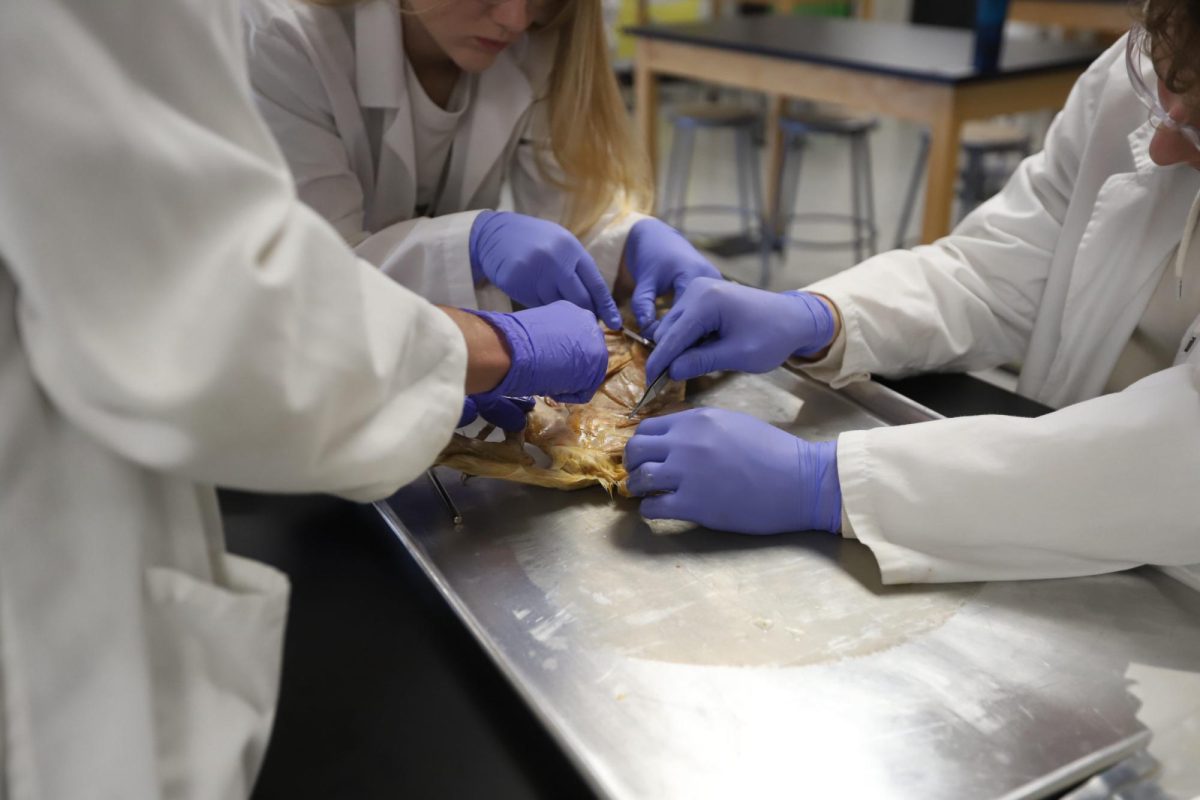Struggles of depression, social anxiety affect students
Low self-esteem and insecurities are an ever-present issue among teenagers, creating a crippling barrier to success. The problems youth face now can quickly turn into major issues in the future as they grow into adults.

According to a survey conducted by Mental Health America, 11% of youth (ages 12-17) reported suffering from depression, and 7.4% (or 1.8 billion) experienced severe depressive symptoms in 2016. Major depression is marked by significant and persistent feelings of sadness that can be accompanied by suicidal thoughts, feelings of worthlessness and fatigue. This, in turn, hinders a young person’s ability to concentrate or perform normal activities.
Licensed therapist Audrey Punnett helps children, adults and other professionals in her mental health field. She is the only certified Jungian analyst in Fresno County and has been serving the community since 1976. Punnett believes a child’s self-worth stems from the family atmosphere they are involved in.
“Self-esteem is very complex, and it’s made up of several components; a sense of feeling productive, a sense of being able to accomplish things, and taking risks,” Punnett said. “The treatment for those kinds of things includes working with the family to create the sense of identity that one has in belonging to a family. Offering children opportunities to contribute increases their sense of belonging, and when one has a sense of belonging, they naturally will feel good about themselves.”
I think it’s hard for kids and adults to talk about their problems because there’s this impression that if they do, then other people won’t care. I think that isolation is what perpetuates a lot of the emotional problems in the first place. My interpretation of what helps people heal from their emotional struggles is feeling the comfort in experiencing a sense of worthiness to be able to talk about it. –Ben Carr
Despite the high level of those afflicted, 64.1% of youth with major depression do not receive any mental health treatment. The Mental Health America website acknowledges this decline.
“Youth mental health is worsening,” MHA reported. “Six out of 10 young people who have depression and who are most at risk of suicidal thoughts, difficulty in school, and difficulty in relationships with others do not get the treatment needed to support them.”
Jane Doe*, an FC student, has experienced firsthand the effects of untreated mental health problems. She receives medication and therapy for her severe depression.
“I have struggled with depression and low self-esteem for as long as I can remember. It went untreated for a long time, and I eventually tried to kill myself. I think a lot of people assumed that after I survived, my problems went away, and it seemed that everything was swept under the carpet. I urge people who feel like there’s no way out to seek professional help, there will always be someone who will listen.”
Children’s brains are not fully developed, making them more susceptible to minor issues. Punnett acknowledges the risks adolescents face in their day to day activities.
“I think youth are more vulnerable because they’re growing and learning, and they’re very sensitive to their parents’ approval,” Punnett said. “We know from research that parent approval is more important than any other incentive that one can think of, so if parents are not approving, self-esteem can be affected. It’s the most powerful.”
Many people don’t realize that there are treatment options provided that are easily accessible. The first step in seeking help is to contact your general practitioner, who can then recommend doctors in your area. Talk therapy and medication are often the introductory stages of treatment.
Beyond this, certain websites can provide information including certifications, accepted insurance, different treatment options and reviews. Databases like Anxiety and Depression Association for America, Psychology Today, and GoodTherapy offer these along with specific medical options based on location.
FC student John Doe* shares his experience with his own insecurities.

“Dealing with episodes of depression is like flipping a coin,” Doe said. “Sometimes it’ll seem to last forever; other times it’ll go away. For me, when I start an episode, I lose interest in everything; I start to think that everybody around me doesn’t want me to be there and that I don’t belong. Now the biggest thing about having this ‘baggage’ is carrying it, and it’s a tough thing to do. So I just try my best not to take anything too hard and just think as positively as I can.”
The stigma behind mental illness prevents many from seeking help for their problems.The truth is that millions are affected, regardless of age, race, gender or status.
There are opportunities for one-on-one meetings with professional counselors on campus. Contact academic advisor Evangelina Tello for more information. New counselor Ben Carr believes that many kids don’t open up about their troubles because they don’t feel worthy enough to express how they feel.
“I think it’s hard for kids and adults to talk about their problems because there’s this impression that if they do, then other people won’t care,” Carr said. “I think that isolation is what perpetuates a lot of the emotional problems in the first place. My interpretation of what helps people heal from their emotional struggles is feeling the comfort in experiencing a sense of worthiness to be able to talk about it. That’s what counseling is all about; it’s having a place where someone can say, ‘Hey, I understand. You’re depressed or angry and that’s not something to feel guilty or shameful about.’ I think that the guilt and the shame associated with those feelings is what stops people from talking about it.”
If you’re experiencing suicidal thoughts, call 911 or the National Suicide Prevention Hotline (open 24/7): 1-800-273-8255. For a recent Feather article and video on the topic, read Local suicides prompt campus response.
For more articles, read: Tyler Villines leads football team with passion.
For more by this author, read: Michelle Warkentin prepares to part ways with campus.
This author can be reached via email and Twitter.
*Names changed to protect the identity of the students.










![[Video] 100th CSPA Spring Journalism Conference](https://thefeather.com/wp-content/uploads/2024/04/20240308-cspa-crown-002.jpg)
![[Video] New York Day 4](https://thefeather.com/wp-content/uploads/2024/04/NY-trip-day-4-JC-.jpg)






Janet Vander Kooi • Nov 17, 2017 at 3:44 pm
Thank you for your insightful article. I appreciate you bringing this topic to light and hope it will encourage others to seek help.
Natalya Hill • Nov 17, 2017 at 2:52 pm
Nice article Cate! Just want to say thanks for taking your time to bring awareness to an issue that I know exists even on our campus! It’s amazing to see that you took such an understanding and mature approach to such a controversial topic. It’s people like you and articles like these that make people smile.
Audrey Punnett, PhD • Nov 9, 2017 at 8:30 pm
Thank you Cate for bringing awareness about this topic to the school community. I am happy to hear there are resources on campus where student can go and talk. I enjoyed reading your article and thought it was very informative. Dr. Punnett
Megan Velo • Nov 6, 2017 at 11:47 am
Thank you writing such a detailed article on this topic! My name is Megan Velo and I am also another counselor on campus one day a week providing counseling services to students at FCS. I think that in society, there is unfortunately a lot of stigma surrounding mental health. The truth is that the brain is a part of your body and just like other parts of your body, you shouldn’t neglect it when it needs support. We hope that by being on campus, we can minimize the stigma and provide help for those who need it!